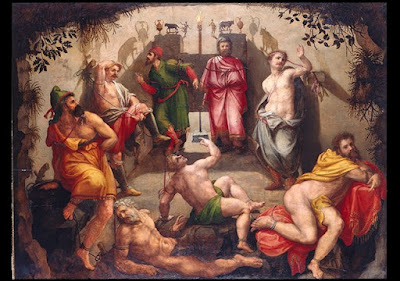★★★★★ Tahir Shah (Ed), Idries Shah Remembered.
An Afterword to my own Reading
Like the Sufi mystical tradition that Idries Shah represents, champions, and exemplifies, Shah himself is so multi-faceted that he cannot simply be categorised or pigeon-holed, and perhaps dismissed. There's a tale in the book, containing an idea that crops up again and again, and which applies here: that of the elephant in the dark, an ancient tale that the Sufi Rumi reinterpreted. In this teaching tale, either several blind men are led into the presence of an elephant or sighted people are led to an elephant in the dark, a creature that they know nothing about. One feels its tusk and declares that it is a spear; another touches its ear and declares it a fan; a third is adamant that the tail is a rope; another that its belly is a barrel; and yet another that its sturdy legs are pillars. None of these men “see the whole picture”, the reality. This task of recognition is perhaps made all the more difficult because the externals of the Sufi teachings have throughout history been adapted to suit the current time, place, people, and circumstances, and the tradition's proponents have correspondingly adapted their methods in the face of necessity. Additionally, in Shah's own case, he went to some lengths to strip away cultural accretions around the precious gem or kernel that is Sufism, to the consternation of numerous Orientalists, religionists, and those wedded to exoteric tradition.



.jpg)
.jpg)














